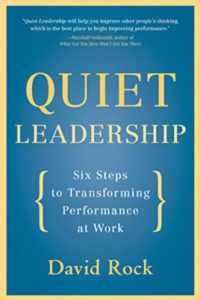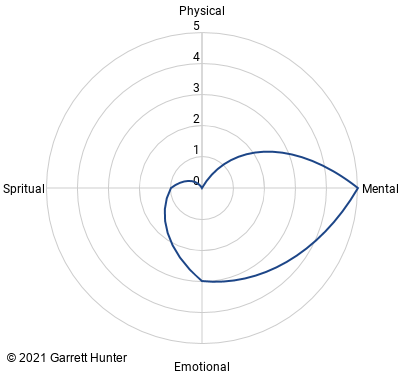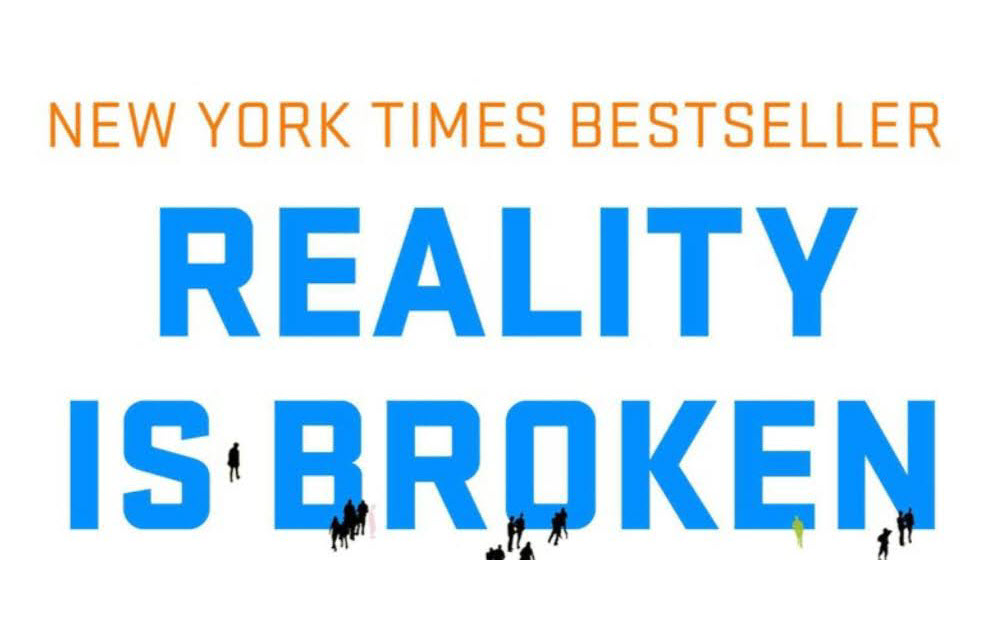Written by David Rock
I first read the book in 2013 when I was exploring how to improve my delegation skills and increase the collaborative problem solving on my teams. In 2021 I returned to it while working with the advertising platform division at Disney. I wanted to scale up my ability to influence beyond the immediate teams I was mentoring.
Quiet Leadership hypothesizes that leaders are most effective when they lead quietly, behind the scenes, helping people come to their own conclusions and solutions. It is the classic If you teach a human to fish, they can feed themselves for a lifetime. Rock references neuroscience studies to back up his perspective. He describes what today we consider neuroplasticity – the brain’s ability to reorganize synaptic connections in response to experiential learning.
The book opens by describing how science has demonstrated we can change our thinking patterns over time. Through awareness and repeated practice we can form new habits. It has been a long held belief that our brains are hardwired. It was not possible to change our thinking. His six steps offer an approach to encourage more inspired thinking by all people involved in a conversation. Employing these steps Rock believes we can “make a difference in another person’s performance.”
Without spoilers, the six steps would have us improve the way people versus what they think about. By asking questions instead of giving advice, asking permission, and being succinct a leader can create an environment optimized for insights and new thinking.
Why Would You Read This Book?
If you are working in an environment that values curiosity and creativity this book provides a framework that can be leveraged to set up conversations to encourage independent thought. This book is for people who want practice delegating responsibility and problem solving to other team members. The framework described in the book goes far to improve one’s listening skills too.
Garrett’s Holistic Scale
I score each book review on a four axis, 0 – 5 point scale that measures how deep a book explores physical, mental, emotional, and spiritual concepts. Use these scales to find a book that explores concepts you are most interested in reading.






Leave A Comment